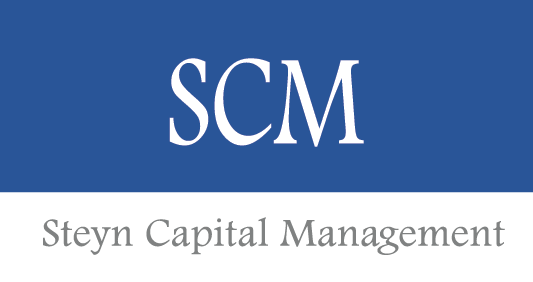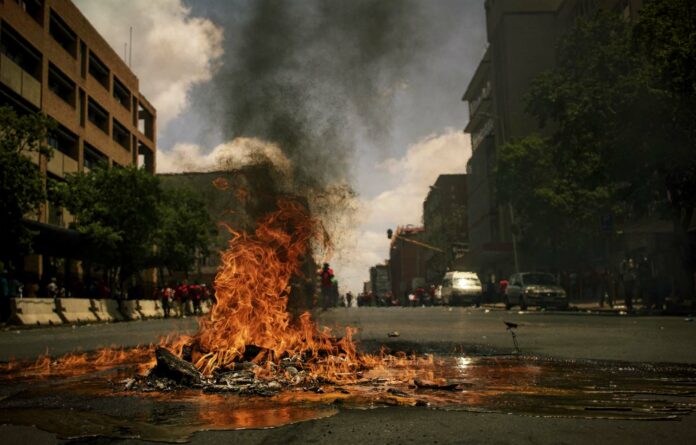For many, living in South Africa has not been an endeavour for the faint-hearted. Confronted daily with severe inequality, rampant crime, and a state that seems unable to provide even the most basic of services, it’s often hard to see anything beyond problems. The past decade has also shown little cause for optimism, with GDP per capita implying the average citizen is no better off now than they were at the start of the 2010s.
To a large extent, our current problems boil down to a lack of jobs, and a lack of public services. While I’ve been quite negative on the government’s ability to rectify these issues, there are green shoots emerging.
The best analogy I’ve come across for how this country was run during the Zuma-administration, probably spilling over into the current administration, is reflected in the 23rd episode of the hit TV series The Sopranos. In it, a store-owner foolishly becomes indebted to the mob. In order to repay those debts, the mobsters take control of his store, and proceed to utilise and exhaust every one of the store’s credit lines to buy expensive merchandise, which they subsequently unload for their own benefit. The end result is of course an insolvent store, and a few very wealthy mobsters.
What we tend to forget, however, is that our history is filled with apparent existential crises. This is not the first, and definitely not the worst, economic crisis in our history. To get a better perspective, it is valuable to take a look into the past.
The year is 1985.
Foreign capital is fleeing South Africa at an unprecedented level, with international economic sanctions becoming a question of “when” and “how severe”, rather than “if”. The government, seemingly having settled on a scorched-earth policy, has announced its renewed commitment to the system of apartheid, cemented in the infamous Rubicon Speech. Protests and unrest are becoming increasingly violent, as the people continue to struggle against a government ruling for the benefit of a minority within the minority.
As if things in the political sphere weren’t bad enough, the economy is in a severe recession – the worst since the 1930s. Inflation rages at 16%, undeterred by the 20-25% interest rates on offer. The value of the rand has dropped almost 40% over the last year, with 10% overnight plunges becoming a frequent occurrence. The government is scrambling to apply plasters to gunshot wounds, periodically suspending trading on the rand.

CA(SA), Analyst ,Steyn Capital Management
In summary, things were very, very bad.
This was a dark time in South Africa’s history. As I’m sure many will agree, the situation today is nowhere near as disastrous, which of course is a point in itself.
So, 1985 must have been a terrible time to invest into the country? Well, let’s say you invested R100 into the JSE ALSI at the start of 1985, and held until the end of 1989. In ZAR, your R100 would be worth R379 at the end of 1989, for a 31% annualised return. But what about the raging inflation? This averaged 16% p.a. for the period, leaving you with a 15% annualised real return. In USD, the 31% annual return would reduce to 24%.
This isn’t to say the economic doomsayers were wrong in 1985. In fact, GDP per capita dipped significantly in 1985 (-26%), and ended the decade below the levels of 1980.
While the economists weren’t wrong about the issues at the time, Mr Market was wrong in pricing those problems into perpetuity.
Our problems as a nation back in 1985, as I believe is the case with our problems at present, will not continue forever. This is not to say things will turn around quickly. Boom-and-bust cycles work in decades, while investors often think in quarters.
Where government has however repeatedly shown its inability to solve our problems, private industry has consistently stepped up to the plate (if allowed). Whether it be healthcare, security, housing or transport, the private industry has shown that it can fill the gaps. For many, healthcare is covered through private medical aid, their houses are protected by private security companies, while transport is generally a service provided not by public trains or busses, but largely through the private taxi industry.
To a large extent, our current problems boil down to a lack of jobs, and a lack of public services. While I’ve been quite negative on the government’s ability to rectify these issues, there are green shoots emerging. The government’s increasing openness to allowing private industry in, is massively positive. From private-partnerships for the operation of our ports and railways, to enabling private power generation and getting rid of vanity projects like SAA, there is definitely a push in the right direction.
Looking at the data, for example, it’s clear to us that there is a huge wave of renewable power generation capacity coming from the private sector. It’s only a matter of time, perhaps 12-24 months, until we believe the private sector, together with the return of critical power generation units at Kusile and Medupi, will have resolved a large proportion of the current load-shedding.
SA Inc shares are currently trading at valuation levels similar to those seen in the Global Financial Crisis of 2007-8.
Never one to disappoint, Mr Market has again been busy extrapolating our current issues forward into perpetuity. We believe this offers an attractive entry point for select high quality, cash flow generative, SA Inc businesses.
The stampede of capital out of SA is also clear in the data. Local balanced funds, taking advantage of the increase in offshore allocation limits from 30% to 45% – effective Feb’22 – have been running for the exit, with their offshore allocation now around 40%. Foreign investors, being the marginal buyers and sellers, are one-third underweight SA vs the respective emerging market benchmarks. The proportion of SA government bonds held by foreigners has almost halved over the last 5 years, now approaching 25%.
Mr Market is, to some extent, pricing us to become the next Zimbabwe, Venezuela or Argentina. While this is possible, we believe it to be improbable, and only one of multiple, more likely paths going forward. If things turn out not to be that bad, maybe just OK, it calls for a significant upwards re-rating of current valuations.
While many may not believe in the future of this country, history shows us that it is not a smart move to bet against its people. I know where my money would be.










